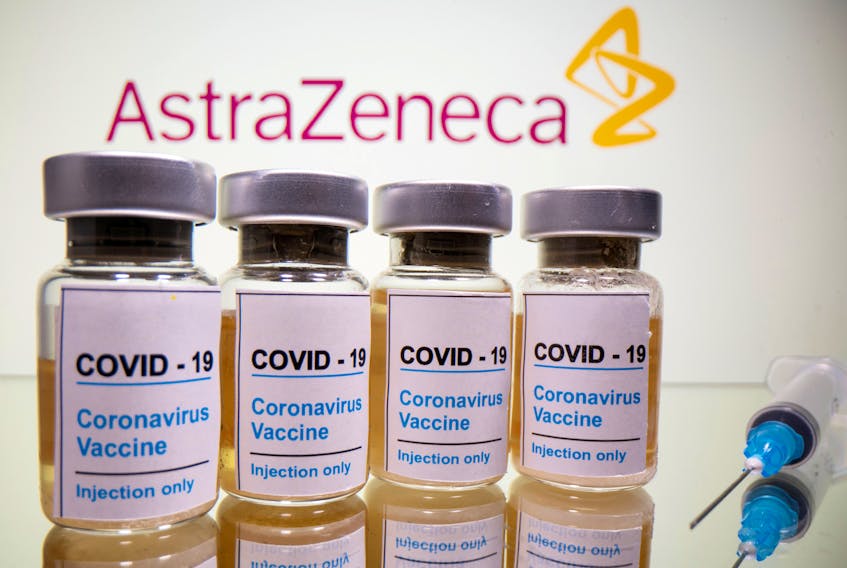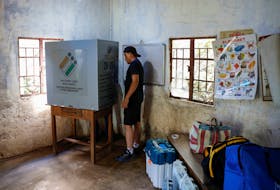By Alistair Smout and Natalie Thomas
LONDON (Reuters) - Britain is on track to make COVID-19 vaccines widely available by next spring after the shot developed by Oxford University and AstraZeneca was up to 90% effective in trials, the head of the university's Jenner Institute told Reuters on Monday.
The encouraging late-stage interim trial results were the third set of data showing efficacy levels among the seven vaccine candidates Britain has ordered, after Pfizer/BioNTech and Moderna earlier this month.
"I think we are on track for the timeline ... to start getting this vaccine rolled out from December," Adrian Hill, director of Oxford University's Jenner Institute that developed the vaccine, told Reuters.
Britain has secured 100 million doses of the AstraZeneca shot, 40 million of the Pfizer vaccine and 5 million of Moderna's candidate.
British Prime Minister Boris Johnson has highlighted the prospect of vaccines as a reason for optimism that things could improve by spring after he introduced a second national lockdown in England this month to tackle rising infections.
"Clearly the most hopeful advance of all is how vaccines are now edging ever closer to liberating us from the virus, demonstrating emphatically that this is not a pandemic without end," he told parliament on Monday.
"We can take great heart from today's news, which has the makings of a wonderful British scientific achievement."
AstraZeneca's interim results showed that a regimen of two full doses was 62% effective in shielding people from COVID-19, though the efficacy rate jumped to 90% if the first shot was only half a normal dose.
Hill said high-risk groups would receive the AstraZeneca vaccine before it was rolled out to everyone in spring.
"I think that could be done. It's going to be an enormous effort ... hopefully there will be vaccine available for all adults, but that's likely to be springtime rather than in January," Hill said.
BACK TO NORMAL?
AstraZeneca executive Pam Cheng said there would be enough supplies of the active ingredient in the vaccine to provide Britain with 20 million doses by the end of the year and 70 million by the end of March.
She said that would translate into 4 million finished doses this year and 40 million by the end of March. The vaccine is also being manufactured by other AstraZeneca partners.
Britain's health minister has asked the health service to be prepared to deliver vaccines from Dec. 1, although he said he expects the bulk of the roll-out to happen next year.
"It's marvellous," said 59-year-old Jo Canilleri. "Hopefully we won't take that long before we can actually get it, because ... a lot of people are just ignoring this. It's not a thing that you can ignore. I mean look at the lives we've lost."
In Britain 55,000 people have died from COVID-19, the highest death toll in Europe.
Britain expects to receive 10 million doses of the Pfizer vaccine, which was 95% effective in trials, this year but the fact it needs to be stored at minus 70 degrees Celsius could pose logistical challenges for a mass roll-out.
Britain won't receive any Moderna vaccines, which were 94.5% effective based on initial results, until next spring.
Andrew Pollard, director of the Oxford Vaccine Group and chief investigator into the trial, said results released so far showed vaccines could help protect against severe cases, which in turn would help Britain's National Health Service (NHS).
"That, to me, means that, whichever of the vaccines we could deploy we're likely to be able to prevent people going into hospital clogging up, in this country, the NHS and allow us to at least get that bit of the system back to normal," he told Reuters.
(Reporting by Alistair Smout and Natalie Thomas; Additional reporting by Kate Kelland; Editing by David Clarke)









